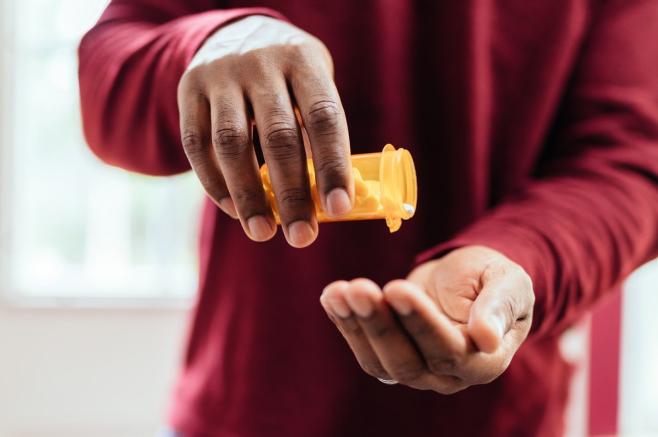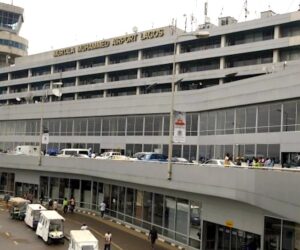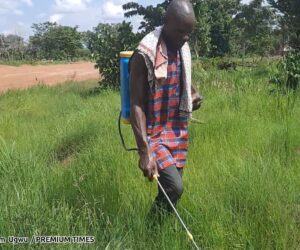Self-medication is the use of drugs to treat self-diagnosed disorders or symptoms, or the continued use of previously prescribed medicines without professional input, according to the World Health Organisation (WHO).
It may also involve the use of herbs, the re-use of old prescriptions, or the direct purchase of prescription-only drugs without medical supervision.
The practice, which is common globally in both developed and developing countries, has in some cases become more prevalent than the use of prescribed medication.
In Nigeria, self-medication has become deeply rooted, often driven by poor access to healthcare, high treatment costs, and the ease of obtaining drugs over the counter.
In this interview with PT Health Watch, Qudus Lawal, a Consultant Obstetrician and Gynaecologist (Oncology) at the Irrua Specialist Teaching Hospital, Edo State, speaks on the dangers of self-medication and what can be done to curb the habit.
PT: From your medical point of view, what exactly does self-medication mean, and is it something to be considered risky?
Mr Lawal: I would define self-medication as the practice of using any medicine or remedy without a professional prescription to treat either a self-diagnosed condition or even a diagnosed one.
It is a common practice in this part of the world, largely because people have free access to medications over the counter, unlike in most developed countries, where you require a provider’s prescription.
This poses several risks. First, when you self-diagnose, your diagnosis may be wrong, meaning you will likely use the wrong drug. Second, drugs have strict guidelines for use. When prescribed by a healthcare provider, you get proper direction on dosage and duration. Without that, misuse can lead to complications; for instance, painkillers, when used indiscriminately, can cause gastric ulcers.
Also, self-medication may mask the severity of an illness. For example, painkillers may relieve pain temporarily while the underlying condition worsens, leading to late diagnosis. There’s also the risk of drug-drug interactions and addiction. For all these reasons, it’s always advisable to consult a healthcare professional before taking any medication.
PT: Beyond orthodox medicine, some Nigerians use herbal or traditional remedies to treat ailments. What’s your view on this practice?
Mr Lawal: I would not dismiss traditional or alternative medicine entirely, as some may be beneficial.
However, the main concern is safety. For many of these preparations, we don’t know the exact dosage, potential side effects, or the right condition to use them for. As a result, people sometimes develop complications from unregulated herbal use.
That said, there are recognised alternative treatments approved by regulatory bodies such as the Medical and Dental Council of Nigeria (MDCN). So, if anyone must use traditional or complementary medicine, it should be those that have been tested, certified safe, and properly dosed, not random herbal mixtures with unknown effects.
PT: There’s a growing concern about antibiotic misuse and resistance. How does self-medicating with antibiotics contribute to this problem?
Mr Lawal: Antibiotics have been one of medicine’s greatest discoveries; they turned once-deadly infections into treatable conditions. However, we are now facing a crisis of antimicrobial resistance due to misuse.
People often buy antibiotics without a prescription and take them for the wrong reasons or stop mid-treatment. This abuse allows microorganisms to adapt and become resistant. If this continues, we could enter a “post-antibiotic era,” where common infections that were once easily treatable become life-threatening again.
To preserve antibiotics, their use must be guided by clinical or laboratory evidence that shows which drug is effective for a particular infection. Without such control, we are creating “superbugs” that no longer respond to existing medicines, and that’s a huge public health threat.
PT: Why do you think many Nigerians still practise self-medication? Is it because of cost, poor access to healthcare, or lack of awareness?
Mr Lawal: All those factors play a role. Access to healthcare remains a major challenge in Nigeria. Long waiting times at hospitals discourage people, so they simply buy drugs from nearby chemists.
Cost is another major driver. People weigh the expenses of consultation, transport, and tests, and decide it’s cheaper to treat themselves. Some also underestimate their symptoms; they assume a headache or fever is “minor” and self-treat, even when it could be something serious.
Advertisement of drugs also fuels the problem. Many ads tell people to see a doctor if symptoms persist after two days, but most people ignore that advice and keep taking the drug. So, lack of awareness, poor access, and cost all combine to drive the habit.
READ ALSO: Nigeria averts 18 Million malaria cases annually – Official
PT: What steps can government agencies, pharmacies, and the public take to reduce self-medication and encourage responsible health-seeking behaviour?
Mr Lawal: The first step is public awareness, educating people about the dangers of self-medication, just like we are doing through this conversation.
Next is to strengthen policies on prescription drugs. Over-the-counter access to prescription medicines, especially antibiotics, needs to be tightly controlled.
The proliferation of unregulated chemists must also be addressed. While they serve communities, their operations should be properly supervised to prevent misuse.
Finally, we must strengthen the healthcare system. When people can easily access affordable, quality care, they are less likely to self-medicate.
If we fix the system and enforce drug regulations while intensifying public education, the rate of self-medication will drop significantly.










